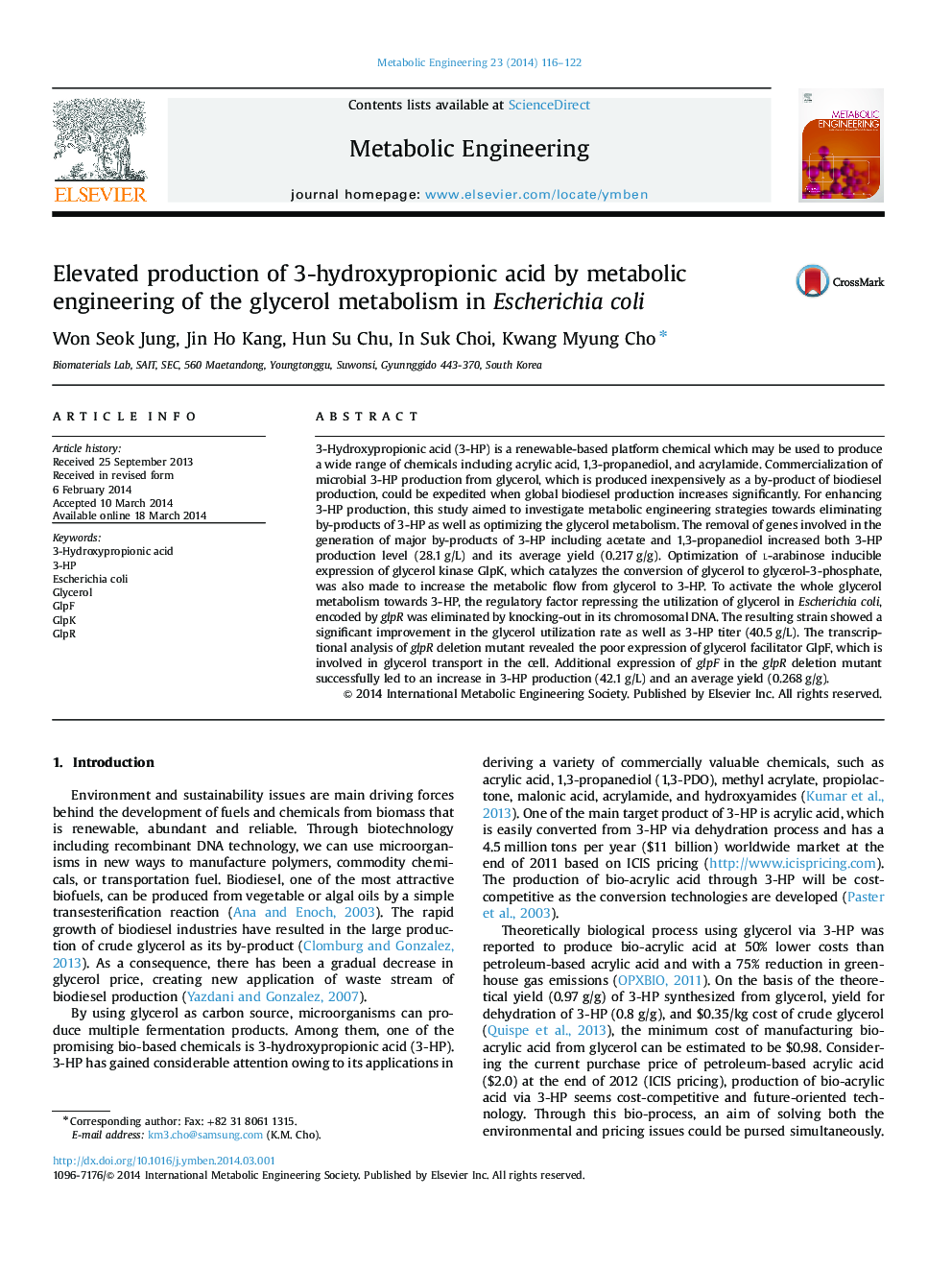| Article ID | Journal | Published Year | Pages | File Type |
|---|---|---|---|---|
| 31542 | Metabolic Engineering | 2014 | 7 Pages |
•Escherichia coli was genetically engineered for 3-HP production from glycerol.•We eliminate biosynthetic pathways of by-products including acetate and 1,3-PDO.•The expression level of glycerol kinase significant affects 3-HP production.•Glycerol pathway repressor, GlpR is a major hindrance factor in 3-HP production.•The glpR deletion insufficiently elevates the glycerol facilitator expression.
3-Hydroxypropionic acid (3-HP) is a renewable-based platform chemical which may be used to produce a wide range of chemicals including acrylic acid, 1,3-propanediol, and acrylamide. Commercialization of microbial 3-HP production from glycerol, which is produced inexpensively as a by-product of biodiesel production, could be expedited when global biodiesel production increases significantly. For enhancing 3-HP production, this study aimed to investigate metabolic engineering strategies towards eliminating by-products of 3-HP as well as optimizing the glycerol metabolism. The removal of genes involved in the generation of major by-products of 3-HP including acetate and 1,3-propanediol increased both 3-HP production level (28.1 g/L) and its average yield (0.217 g/g). Optimization of l-arabinose inducible expression of glycerol kinase GlpK, which catalyzes the conversion of glycerol to glycerol-3-phosphate, was also made to increase the metabolic flow from glycerol to 3-HP. To activate the whole glycerol metabolism towards 3-HP, the regulatory factor repressing the utilization of glycerol in Escherichia coli, encoded by glpR was eliminated by knocking-out in its chromosomal DNA. The resulting strain showed a significant improvement in the glycerol utilization rate as well as 3-HP titer (40.5 g/L). The transcriptional analysis of glpR deletion mutant revealed the poor expression of glycerol facilitator GlpF, which is involved in glycerol transport in the cell. Additional expression of glpF in the glpR deletion mutant successfully led to an increase in 3-HP production (42.1 g/L) and an average yield (0.268 g/g).
